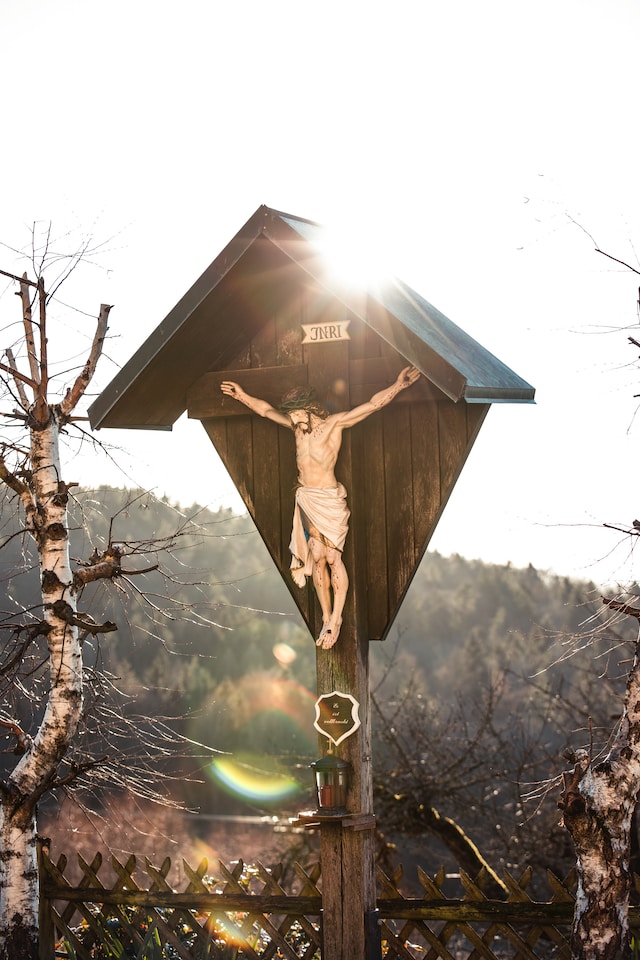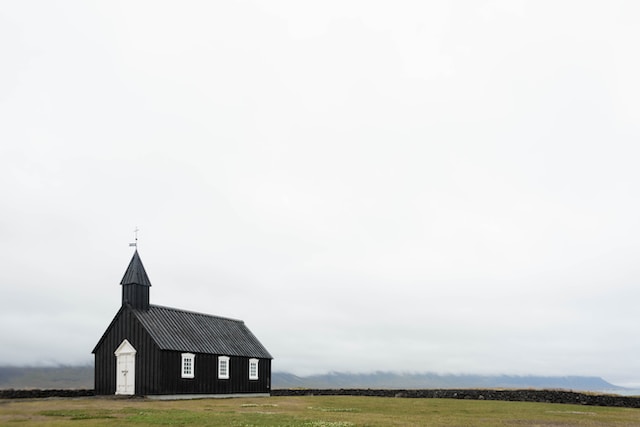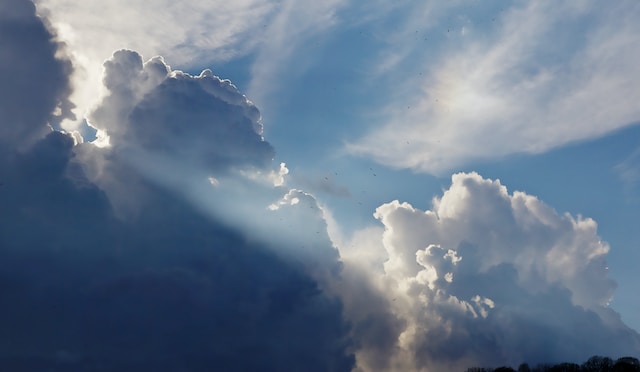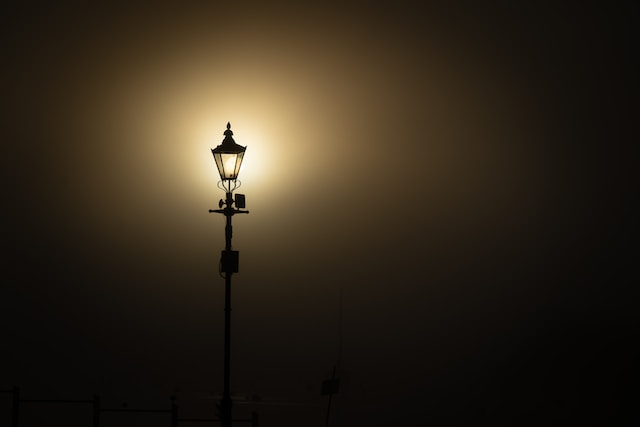Lewis Meany’s insides tingled with anticipation as he waved at his family’s departing car. Even at that hour, the spring sun was beating down most intently on the flat and sedate parts of town below. He glanced down the hill at the rest of Taft, the rest of the city butting up against the rolling desert hills, and even though the sunshine made it a blur, his imagination filled in the images of the pastel, stucco box houses he had lived in until he was seventeen. Until he was thirteen, he thought most houses were one-bedrooms, and that it was common for parents to sleep in the living room. To Lewis, a three-bedroom house—let alone a five-bedroom home with a guest house in the back—would have been to him a mansion. An unattainable dream.
Those dusty, gravel-strewn streets, lined with a motley assortment of overgrown yards protected by grey, chain link fences, were his home. He had felt many things in this new house atop the hill in Taft Heights, but gratitude was not among them.
Lewis had done well enough at Taft High School, a school not known for producing Ivy League scholars. Most boys were destined for jobs in the oil fields, or other odd jobs around the region, prison, or moving away from the area to disappear. He had potential to get away from here, they said. We’ll help you, they said. Just fill out this application, we’ll even pay for the postage.
The minivan rolled down the hill, in between the vibrant green evergreens that lined the streets, shooting up into the air, and giving the impression of affluence. Down below, there was only a month or two where the trees—mostly deciduous—came alive with vibrant ardor before the sun beat down on them, pummeling it into the dusty brown canopy that Lewis knew best.
They were gone, he thought. Excitement swelled within him. He knew what he was doing today, and its power drew him to the house like a magnet. His enthusiasm led him to the bedroom. There was no more delaying. He walked over to the closet when the phone rang.
His mom had just gotten a new caller ID machine from Radio Shack, and it sat, a blue light blinking as the phone rang out. Lewis looked down at it.
PRISON, it said, in black digital letters.
That’s odd, he thought. Not odd enough to pick up though. He looked at it for three seconds longer, and then waited until the ringing stopped. Nothing was getting in his way. Lewis strode back into his bedroom and opened his closet door. In the back of the closet was a set of three dresser drawers built into the closet, and it reminded of the house he used to live in—the one-bedroom—whose one closet was built the same way, leading Lewis to utilize this one for the same purposes. Had mis mother ever know about this secret hiding spot? She probably did, he thought, and shrugged.
He got down on his knees and carefully pulled out the bottom drawer, tilting it backwards so that he could see down into the space behind it. He grasped the sides of the drawer like he was Indiana Jones and there was a golden monkey’s head hidden on the other side.
Three magazines, coming to him in different ways down the years. One was vintage and sun bleached, he found it walking down the highway when he was eleven, flapping in the wind in the grip of tumbleweed. He gazed at the decorously dressed bride and groom—having sex. In another the World War I female bomber pilot—in various stages of undress.
There was a VHS tape, the white label sprawled with different crossed out titles with the last remaining being “Star Wars”. A pipe, it’s red, white and blue tints swirling through the glass. Lastly, a bag of weed, just acquired this week with money gained from working a landscaping project that his stepdad Jon had helped him get, that he had thusly quit when he had made enough to get what he wanted.
He had fantasized throughout the evening before and throughout the morning…which order would he indulge himself. Video first? Take some time with the magazines?
The phone rang again and Lewis hesitated. Again, duty called, and he decided that this was the last time. The phone was coming off the hook after that.
He glanced down at the little round box on the counter.
PRISON, it said again.
He picked it up and before he could say “hello” a recorded woman’s voice was talking to him.
“You are receiving a call from the California Department of Corrections. All phone calls received or made to this facility are fully recorded in accordance with California law. This phone call will end in 180 seconds.”
There was a bleep and then a slight pause before anyone came on.
“Hello?” a meek voice asked.
“Hello?” Lewis answered back.
“Is Jana there?” the voice asked.
At first, Lewis stalled, wondering whether he should just hang up right then, but then this was the second time this person had called, and they’d likely try again.
“No, who’s this?” Lewis asked.
“It’s Richie,” this time the voice was more animated, expecting Lewis to know who that was.
“She’s not here. Who’s Richie?
“Hey, um, Lewis, it’s me Richie. We met at the reunion last year.”
Richie, Richie, Richie…. Lewis was sifting through his brain to place him. He could only conjure up the vague feeling that he had met him; Richie knew enough at least to demonstrate that there was a family reunion last year.
“Sorry, Richie. She’s not here right now.”
“Oh,” he paused—in the middle of this pause, a recorded message came on:
“This call from the California Department of Corrections will end in approximately 90 seconds.”
“Can you just tell her that Richie called?” he said, sounding forlorn.
“Sure thing, Richie! Will tell her you called when she gets back,” Lewis answered, careful not to give him a timeframe or a location of his stepsister’s whereabouts.
“Ok, thanks,” he answered, and then there was a click and the line went silent.
After placing the telephone receiver back up on the wall, Lewis stood there for a second staring at the phone. Any excitement he had had before—his anxious, anticipatory erection—was now gone. He didn’t know exactly why, other than the fact that Richie’s call had filled his head with too many questions.
He slowly walked back to his bedroom and looked stoically at his stash of bodily indulgences and sighed.
There’ll be time, he thought.
He grabbed it all and tossed it on his bed, took the pipe, bag of weed, lighter, and sat on the edge of his bed with his shoulders slumped as he fidgeted with the tools. He continued to wonder who the hell Richie was. He had a few people at the reunion who could have been meth heads or recovering meth heads. In Taft, it seems like everybody had them in their families, even a family like his stepdad Jon’s, who had ranches, streets lined by verdant evergreens, and owned more than one house.
Lewis struck the end of the lighter and lit the pipe. That wasn’t Richie though, he thought, Richie was someone else. He inhaled and let the smoke linger and as he continued, he let the knowledge of being all alone for the next few days enhance his high.
He leaned back and realized that he had a spare bag of chocolate Donettes at the edge of his bed. He grabbed a couple of them, put them into his mouth, and leaned back.
Richie, Richie, he thought as he drifted off to sleep.
* * *
He awoke suddenly, sensing that someone was coming up to the house, even though his bedroom was towards the back of the house.
The doorbell rang. There it is, he thought.
He looked at the alarm clock next to his bed. He had only been asleep for about an hour. He slung his legs over the side of the bed and sat there, scratching his head, as if the doorbell hadn’t rung at all.
The doorbell sounded again, and he remembered his stepfather’s admonition to pick up phone calls and figured that this extended to in-person visits as well. He got up and ambled to the door, his body still loose and relaxed from the high that put him back to sleep. The doorbell rang again. Perfectly spaced and persistent, Lewis thought.
Lewis opened the door and staring him in the face was a young man, about the same age as Lewis, and although he was an adult, he had the carriage of a teenage boy. A big mop of thick, black hair lay on his head, parted down the middle, and he was wearing a No Fear Shirt and long black basketball shorts down to his shins.
“Hey!” he said. “Is Jana here?”
The boy was Asian, but with dark skin, and bright, round, coal black eyes.
“Richie?” Lewis asked.
The boy’s face brightened. “Yeah! Hey Lewis,” Richie said. “Is Jana here?”
“Did you call me this morning?”
“Yeah! That was me!” Richie continued excitedly.
“From prison?”
“Oh yeah,” Richie paused, but continued smiling. “I just got let out this morning.”
Lewis scratched his head and let the memories come flowing into his mind. He did vaguely remember meeting Richie at his stepfather’s family reunion last year, looking even more boyish last year than he did now. He wasn’t fat, yet he seemed to have layers of baby fat padded to his round face, his forearms, his calves. Lewis now remembered wondering how he was related to Jon and Jana’s family, as every person there were as white as saltine crackers.
Lewis scratched his messy hair. “I’m sorry, Richie,” he said. “Jana went with my stepdad and mom on a trip this morning. They won’t be back for a few days.”
Richie’s smile twitched, and he looked down at the ground. “Oh…” he said, trailing off.
Richie looked up and said, “Do you think you might be able to give me a ride to church?”
Richie paused and looked at Lewis’s impression. He seemed to sense Lewis was searching for some reason not to, and interjected:
“I tried my Grandma’s house this morning, but she wasn’t there. She must have forgotten today was the day. So I tried here.”
“You walked here?” Lewis asked.
Richie nodded his head and smiled, and then added, “Well, I got a ride up to the Transit Center.”
Still, that was a walk, Lewis thought. The Taft Correctional Facility, on the outskirts of town, was known to everybody, not least the boys and men who had matriculated through Taft High School. The facility, a minimum-security prison for men, was often used as a cautionary visual tale for school administrators, but if you were sent to prison, you’d be lucky to be sent to Taft. Lewis had never been in prison himself, but he knew several classmates who had, and several who went to harder places like Calipatria or Chuckawalla.
“Yeah, sure,” Lewis said. “Just let me get dressed and cleaned up a bit.”
Lewis now remembered why Richie had gone to prison. When he was 18 and still a senior in high school, he had a fourteen-year-old girlfriend, had sex for the first time and got her pregnant. Both families worked with the situation, and the child and mother had actually moved in with Richie and his Grandmother. For nearly a year, things were going smooth, until a certain bee got under the maternal grandmother’s bonnet, and they went to the County District Attorney. It took less than a month for Richie to be convicted and sent to prison for six months.
Now, as they drove down the hill to church in Lewis’s green 1991 Toyota Celica, the issue of prison was dancing through his head. Lewis went for it.
“So, what is prison like?” Lewis asked.
“Oh, well…have you ever been to summer camp?” Richie responded, a boyish smile on his face.
“No, actually.”
Richie continued as if Lewis hasn’t responded, “Well, it’s sorta like that, just not as nice. When you get there, you get uniforms, and you’re given instructions like on the first day of camp. Obviously, people aren’t nice, like on the first day of camp. I think that’s the biggest thing to get used to—nobody is nice there.” He paused. “But…you get used to that pretty quick.”
Lewis nodded as if he were listening to Richie regale him with stories of his summer vacation.
“Weren’t you afraid of getting beat up there?” Lewis asked, then added, “Did…you…get beaten up?”
Richie chuckled, “Oh, the guys at Taft aren’t so tough. And I’m a big guy. There was a guy, a short dude with a bald head, who seemed to sort of…bump into me…I think on purpose, and I just bumped right back into him….”
Lewis imagined Richie doing so with that shit-eating grin on his face.
“For the most part, we go outside, work out, and a bunch of guys play cards, watch movies…you know,” said Richie.
“Huh,” said Lewis, “it doesn’t seem that bad.”
“Oh, no, it was bad,” said Richie, and for the first time, his smile fell and he looked straight ahead. Lewis reached for the radio and turned it on, and they sat in silence for the remainder of the trip.
There was a time when Lewis was a regular church attender with his mom, and a fervent believer. He went to every church that she attended, and throughout their lives, they were varied and eclectic—Baptist, Methodist, Unitarian; they even once attended a New Age Spiritual Center. When he entered his teens, and his mom knew that she wouldn’t be able to control him for long, she left it up to him to join her. And for the most part, he did.
Lewis parked, and Richie got out and turned around to thank him, but Lewis was already out of the car.
“You don’t need to come with me,” Richie said.
“I’m already here, I might as well,” replied Lewis.
Greater Taft Christian Center—or “GTCC” as it was commonly called—was a former Presbyterian turned Pentecostal Church, its transformation illustrated by the paint job, changing the stentorian brown to some kind of sky-blue color. They walked inside and Richie craned his neck over the parishioners to find his grandmother.
“Looks like she isn’t here,” he said.
The pastor was exactly how Lewis remembered him—a squat, cheerful man from Alabama with jowls that hung like full grocery bags.
Something was different though.
It looked like Pastor Dillingham ate Sugar Ray, and then put on a blue pinstripe preacher’s suit.
Huh…frosted tips, thought Lewis.
Below the bleached blond spikes atop the pastor’s head were finely manicured eyebrows, and below that, on his left side, a respectable gold earring.
“Lemme hear ya praise Jayzuss!” he yelled out and then clapped his hands in wide, flapping motions.
Lewis and Richie found a seat as the “worship” part of the service began, a part which, when he was coming, Lewis would miss deliberately. He blamed it on the time it took him to look nice for church, even though he rarely showed up in anything nicer than a pair of jeans and a polo shirt. He could handle everything else, but thirty minutes of forced jubilant singing killed him.
As Pastor Dillingham began his sermon with gusto, Lewis thought back to the Pastor’s more ridiculous sermons. Pastor Dillingham was the prop comic of evangelical preachers. When the Lakers were in the playoffs with Kobe Bryant, the sermon started off with an unseen announcer in a deep, booming voice announcing the Apostles, and in came the ushers, all wearing the jerseys of various star players. Peter, Paul and John were replaced by O’Neal, Fisher and Fox, as they dribbled up to the basketball hoop astride the stage and made a shot. Then the lights went down.
“And now,” the voice bellowed, “introducing the Prince of Peace, the King of Kings, the Lord of Lords! E-man-u-elle himself….Jeesus Chriiiist!”
In entered Pastor Dillingham in a “Kobe” Jersey.
He was the only one to miss the shot.
Now, as the pastor finished his sermon, Lewis looked over to his left and glanced at Richie. If there are any spiritual awakening happening to Richie, it definitely wasn’t happening on his face. He looked dead ahead, the same placid smile beaming between his brown cheeks.
The pastor next set the stage for the altar call, asking those who needed to be saved to come up and receive into their physical bodies the power of the Holy Spirit. Lewis knee why the ushers also made their way up front, and why some of them situated themselves in between and behind certain women.
“If you have not given your heart to Jesus—or if you just need to recommit your heart and receive the Holy Spirit—I want you to come down here and join us today,” said Pastor Dillingham.
The band had started playing again as people made their way to the open space in the front of what could ostensibly be called the altar, but Lewis considered the stage. Pastor Dillingham’s tone softened, as he prayed, in preparation for the steady rise and hum of the communal act of speaking in tongues. The woman who had been accompanied by two ushers was the first person whose voice rose and broke out above the din of prayer.
Lewis watched as the woman, arms raised, bellowed out in a series of incomprehensible string of consonants. All eyes in the church were on her, and even those at the altar who had been praying, their prayers softened, and their attention was diverted to the woman.
A woman seated on the opposite side now sprang up and responded to the woman speaking in tongues. “When the day of Pentecost came, they were all together in one place. Suddenly a sound like the blowing of a violent wind came from heaven and filled the whole house where they were sitting,” she belted. “They saw what seemed to be tongues of fire, that separated and came to rest on each of them. All of them were filled with the Holy Spirit and began to speak in other tonguesas the Spirit…enabled them.”
The first woman then stopped speaking in tongues and began to shake uncontrollably, the two ushers hunched in anticipation, but not yet touching her. Her body threw itself back, and the ushers placed her on the ground, her lips still silently moving in prayer as she lay still, eyes closed on the ground.
“There are mee-ra-culls happening here today…do you feel it?” said the Pastor. “Shambalalaca!”
Lewis had heard him say the nonsensical word, and it struck a discordant note in him. If he was speaking in tongues, Lewis thought, why was he saying the same word over and over again?
The Pastor had his eyes closed, and was now muttering his prayers, “Thank you Jesus, thank you Jesus. Shambala-la-ca, la-ca-ra-doe!”
Lewis felt movement to his left and moved abruptly as Richie made his way up to the front. The ushers who had been attending to the woman on the ground, now ran up to Richie and laid both of their palms on his forehead, joined by two other ushers. Four men were now circled around Richie, their hands-on different parts of his head, shoulders, back. The Pastor felt the switch and responded to it.
“We are all sinners, Lord. Each and every one of us! For those that are hurting….for those that seek you Lord, come down on us today,” he prayed, eyes closed, then muttered in a low tone through his thick lips, “Thank you Jesus, thank you, thank you, thank you Jesus.”
“Shambala-la-ca!” he added.
Richie made his way back and smiled as he inched his way past Lewis. When Richie left the front of the church, the Pastor signal to the band to close things out, and people started to dwindle. The woman on the floor was helped up by the ushers who had helped her on the way down, and she slowly made her way back to her seat.
“Jimmy,” Pastor Dillingham motioned to the guitarist, “let’s bring it down for a moment.”
He paused and closed his eyes, and then looked up to the ceiling, the microphone wavering under his chin.
“Something is coming to me, and it is powerful,” he said. “There is someone here today. Someone who needs healing, and God is calling me…right now, this instant. I know you’re out there and God is calling you to come up here and be saved.”
Pastor Dillingham let that intention sit there in the silence of the church, as the congregation waited for this person he was calling to make their way to the front. He opened his eyes and strolled across the stage, his lower lip tucked neatly over his top, creating ridges in his mighty chin.
“I’m not wrong about this one,” the pastor said, “this is strong, and He is calling me! You are out there…I know you are!”
As the pastor let the silence float over the congregation a second time, Lewis sat and looked inward. He thought about the Hustler and the Jugs magazines he pulled out of his closet and wondered whether he had put them away before he left.
“The Lord does not strike me with this every day!”
Lewis thought of his pipe and the weed, and whether Richie could smell it on him.
“I know y’all wanna get out of here…go watch football…but we have a soul here that God himself is calling personally.”
The third silence was too much, and the congregation, pulled out of its Pentecostal comfort zone, began to stir, some with excitement, most with nervousness. Pastor Dillingham let the microphone hang underneath his chin as he strolled left and right, right and left, across the stage.
Is he talking about me? Lewis thought. Am I supposed to go up there? He thought about the opportunities he had passed up in recent years, about time wasted, about weeks that mimicked other weeks, one after another, because nothing different happened.
“You are sitting there, and you are afraid of your sin. You are afraid of your life. You’re a failure,” the Pastor paused, “but God doesn’t think you’re a failure. Jesus is not afraid of your sin. He is calling you to come up here and give that to Him.”
Lewis was shaken when Richie got up and scooted past him again and joined Pastor Dillingham on stage.
“Young man, what is your name?” the pastor asked.
“Richie.”
“Richie, God called you, through me, to come up here today, and I just want everyone to raise their hands towards Richie and pray with me today.”
As the pastor prayed, Lewis felt a sense of longing, a deep well of purpose that was locked under heavy steel doors, deep down below him.
Lewis saw that Richie was crying now, and through his tears, he said:
“I had a baby with a girl who was underage, and I spent time for it. I just want to do what’s right. What’s right for her. What’s right for my daughter.” He started to hand back the microphone, then added, “That’s it.”
“Praise Jesus!” Pastor Dillingham exclaimed. The congregation exploded into applause and rose to their feet, as the band started up again, and Richie made his way back to his seat.
The service ended, and as Richie and Lewis walk silently side by side through the church lobby, they saw Richie’s grandma coming down the stairs from the balcony.
“Richie!” she exclaimed and held his cheeks in her hands. “I’m so proud of you!”
She looked over at Lewis, recognizing him for the first time. “Lewis! Did you bring Richie here today?”
Lewis nodded.
“Thank you so much!” she said.
“Well, I’ll be going now. Great to see you, Richie!” Lewis felt embarrassed but didn’t know why. “I’ll see you both later.”
He turned to walk out of the church and was confronted by a middle-age woman with bangs down the middle of her forehead and curly locks of hair flowing to her shoulders. She stuck out her hand with a trifold brochure in it.
“Thank you for coming to GTCC! Have you added yourself to the email list yet?” she asked.
“No thanks,” he said, unsmiling, and walked out the door to the midday desert sun.
Randall Terrell is a freelance writer and public relations consultant living in Southern California’s High Desert. When he’s not writing and reading, he’s looking for adventures throughout the desert to share with his wife and 11-year-old son. He is currently working on memoir that tells of his efforts to track down his homeless father’s last days. He can be found on Instagram at @RandallTerrell
















